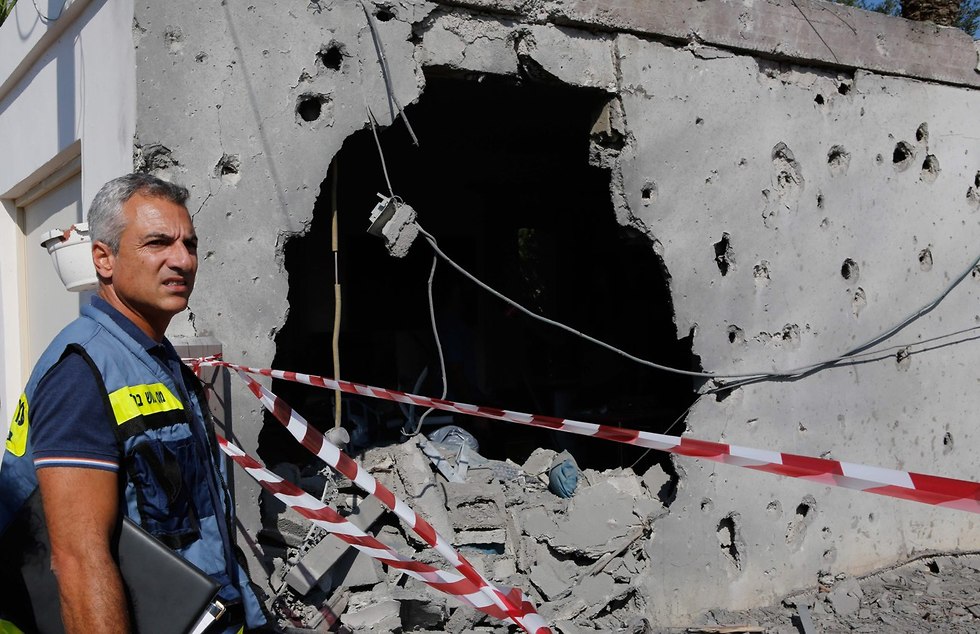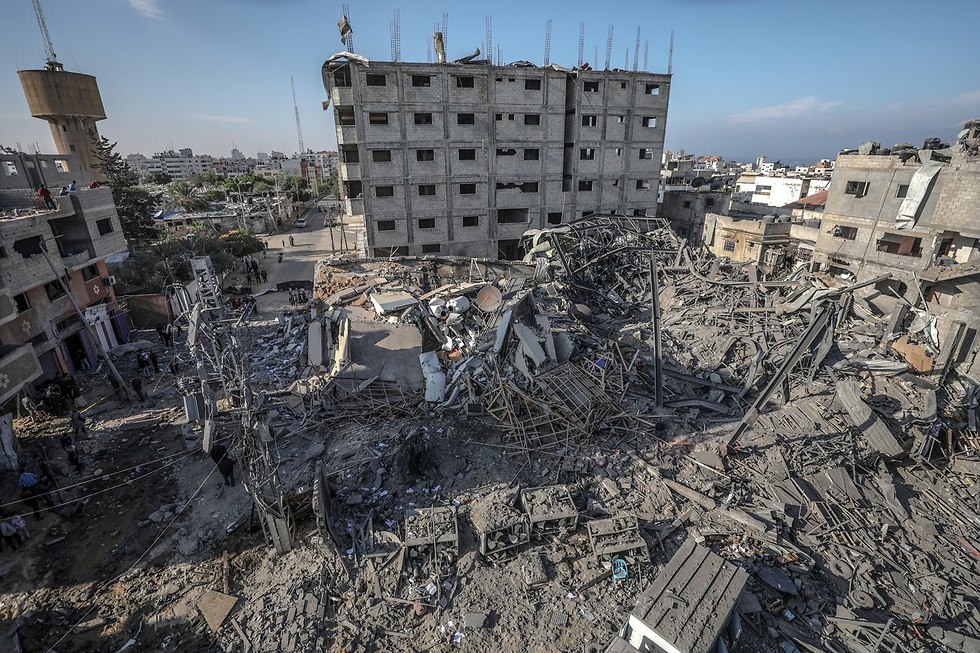
Netanyahu's strategic gamble in Gaza
Analysis: The Security Cabinet's decision to accept the ceasefire agreement with Hamas is eroding what is left of Israeli deterrence; if Prime Minister Netanyahu's experiment fails, Israelis living near the Gaza border would be the ones paying the highest price.
The Security Cabinet's decision to accept the Egyptian-brokered ceasefire agreement is an experiment, better yet a strategic gamble.
The Israeli acceptance of ceasefire the minute Hamas offered it is eroding what is left from the Israeli deterrence, opening the door for further and more severe rounds of fighting in the not too distant future.
It is very possible that Hamas and the Palestinian Islamic Jihad will do our job for us by violating the ceasefire, freeing Israel its commitment to the truce and allowing the IDF to pound Hamas's military assets until a genuine achievement is reached, unlike what has been reached so far—which is not enough to create deterrence.
But we cannot and should not count on the Palestinians to always save us from our own mistakes. The Security Cabinet made the wrong decision by accepting the ceasefire agreement after Hamas had launched an anti-tank missile at a bus filled with soldiers, shortly before the Palestinian terror factions in the strip, let by Hamas, launched over 460 rockets and mortar shells at Israeli communities on the Gaza border.
Moreover, both the truce efforts and the surprise rocket attack launched against Israel on Monday were Hamas's doing. Israel barely responded, serving as the pawn of an organization that wages an attrition war against the residents of its south region.
If the Security Cabinet and Prime Minister Benjamin Netanyahu's gamble succeeds, calm will prevail for at least several months on the Gaza border, and we would be able to go from calm to an arrangement, from which the main beneficiaries would be the residents of Ashkelon, Sderot and Kibbut Zikim. But if the gamble fails, the Gaza border communities' residents would be the ones paying the heaviest price.
One should be skeptical about the chances of the current ceasefire agreement leading to a long-term quiet. This skepticism stems from two reasons: primarily the arrogance demonstrated by Hamas and Islamic Jihad, who have been repeatedly declaring over the past 24 hours that they had "taught Israel a lesson."
Moreover, if the IAF bombardments hurt Hamas, they know how to explain it away, and it's doubtful they are suffering much by the damage we inflicted on their military assets. It's a reasonable price to pay for the psychological blow they hit Israel with. Since the IDF special force's entanglement in Gaza late Sunday, sparking massive rocket and missile fire from Gaza, Israel has retaliated with great restraint.
The second reason that makes success of the ceasefire doubtful is the fact Hamas has yet to renounce the "March of Return" riots, which are most likely to resume on Friday.
These riots will generate local clashes, including the killing of Palestinians, to which Hamas and Islamic Jihad could not turn a blind eye—meaning additional rounds of fighting are to be expected.
Why was a ceasefire reached after all?
As far as I know, Netanyahu did not provide any new explanations for his desire to maintain restraint. He spoke about the necessity of facing the Iranian threat in the north, the need to avoid offending Egypt—with which we share many interests—adding that the defense establishment seeks to prevent a humanitarian catastrophe in Gaza. Apart from that, no other explanation was presented.
It appears that cognitive fixation was the reason Netanyahu pressured the Security Cabinet to accept the ceasefire agreement.
Showing restraint meant something as long as Hamas was not stepping over the line while provoking Israel, and as long as the Israeli deterrence was maintained vis-à-vis Gaza's terror organizations. This week's events have created a strategic turning point for Hamas, causing them to go too far.
The fixated Israeli leadership failed to notice that turning point, and possibly was influenced by political considerations, for which the Gaza border communities' residents will pay the highest price.














